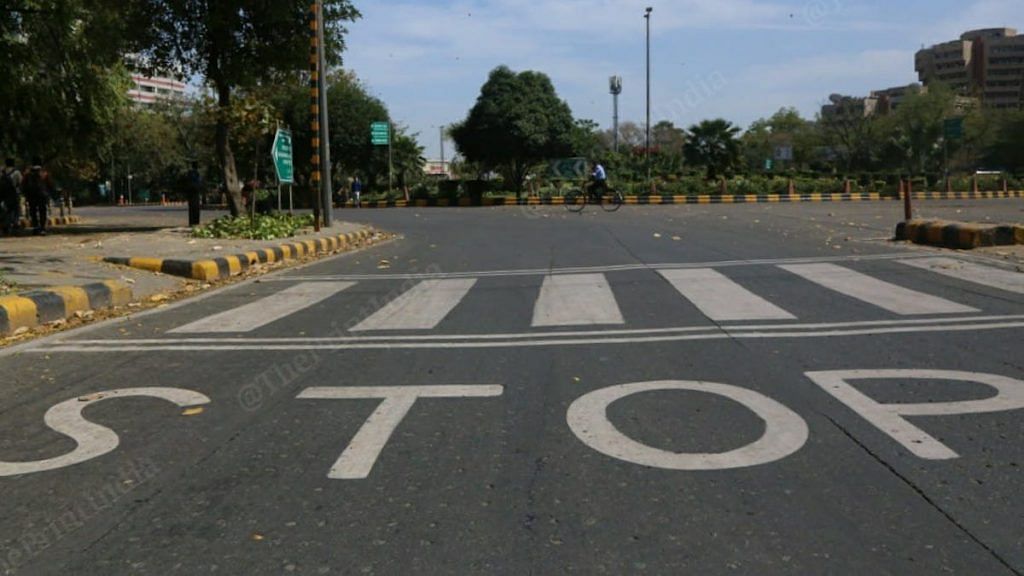It is important to note that countries that have so far done a relatively good job of containing the coronavirus pandemic have refrained from imposing a complete, nation-wide, curfew-like lockdown. These include Singapore, Taiwan, Germany, and Turkey. Even China, where it all started, placed only the Hubei province under complete lockdown, not the whole country.
But Prime Minister Narendra Modi has put 1.3 billion people under a curfew-like lockdown. Since the authorities are using the word ‘curfew’ in the context of issuing passes, it is fair to call it a national curfew.
A national curfew for 21 days will definitely go a long way in reducing the transmission of the deadly virus. But what happens after 21 days? The virus won’t disappear after that. Not until we get a vaccine, and it will take at least a few months to vaccinate every Indian even after a vaccine has been developed. A few months is a very optimistic estimate. In other words, we are in this mess for years.
Like these other countries, India could also have avoided the need for a national lockdown had it done what those countries are doing: testing, testing, testing.
India’s 21-day national lockdown should thus be seen as buying time to create a massive testing infrastructure, so that even asymptomatic people could be tested and quarantined. That’s the only way to manage the coronavirus pandemic until we get drugs and vaccines to administer en masse.
Also read: Modi’s Covid-19 lockdown speech shows he doesn’t learn from past mistakes, or doesn’t care to
The devil is in the details
Sadly, Narendra Modi’s two national addresses have done little to address this concern about India not taking the mass-testing approach. We need fast testing, cheap testing, easily available testing — and a well laid out mechanism to quarantine a person the moment she is found positive, without letting her infect others, including medical staff and family members.
You have to be really naive to believe India’s official numbers of coronavirus patients — and then there are those who have died of sudden pneumonia without being tested or counted as coronavirus deaths.
The lack of widespread testing, as well as the lack of PPEs (personal protective equipment) for doctors, is a scandal. These 21 days are Modi’s last chance to fix these two problems. The responsibility is his more than anyone else’s, but state governments will also be put to test.
Sadly, the evidence so far suggests that the Modi government does not have the capacity to think through the details of planning and execution. This is turning out to be another demonetisation, with the typical Modi problem of mistaking theatrics for achievement.
The deliverable is not how many people clanged pots and pans or how many obediently followed Modi’s advice of staying indoors. The deliverable is how many people got tested, how many doctors have protective gear, how many ventilators the government managed to manufacture or buy overnight. Another deliverable is isolation centres, temporary hospitals in indoor stadia and quarantine facilities that are fit for human beings.
Modi does not have the patience or the interest to deliver on these nitty-gritty details, he’s probably working on his next grandiose ‘address to the nation’ to be applauded for his oratory. He will leave the tough things to state governments and focus on the right optics to sustain his political ratings through a tough period.
Also read: India’s perfectly-timed lockdown & wartime efforts to find Covid-19 cure
If the virus doesn’t kill you…
If we survive the pandemic, we won’t survive the impending economic collapse. The economy isn’t on Modi’s radar either. He won a national election despite disastrous economic policies that gave us a 45 year-high unemployment rate. Why should he worry about the economy?
Demonetisation and GST resulted in killing demand, and this poorly planned national curfew will kill supply chains. We’ll be left with the great Indian discovery, the zero.
Modi announced a national curfew with little notice. He addressed India at 8 pm, and the curfew came into force at midnight. Just like demonetisation. Why couldn’t he have given some notice? Why couldn’t he have done his TV address at 8 am? Maximising prime time attention, you see.
The home ministry issued a list of exemptions but try explaining them to the cops on the street. The Indian police is doing what it loves to do the most: beating up Indians with lathis. Meanwhile, lakhs of trucks are stranded on state borders. Supply chains for the most essential items have been disrupted, including medicines, milk, groceries, food and newspaper deliveries. Nobody in the prime minister’s office seems to be aware of any such thing as crop harvesting, or the Rabi season, as farmers wonder how they’ll do it amid this national curfew. Only Modi can manage to be so clever as to disrupt the country’s medical supply chain while fighting a pandemic.
Modi is the only major world leader who has not yet announced a financial package. In his first speech, he said the finance minister will head a committee, but some in the finance ministry said they heard of this committee from the PM’s speech. He did announce Rs 15,000 crore extra to meet the health expenditure arising out of the Coronavirus crisis — that is Rs 5,000 crore less than the amount of money he has kept aside for his narcissistic and unnecessary project of rebuilding the Central Vista of New Delhi.
At this rate, more Indians might die of hunger than of coronavirus. Modi’s poor administrative skills, zero attention span for details, and preference for oratory over governance spell disaster for this crisis. In a few weeks, we might find ourselves overwhelmed with an epidemic in defiance of official numbers, while the economy might start looking like the 1980s.
The author is contributing editor to ThePrint. Views are personal.
